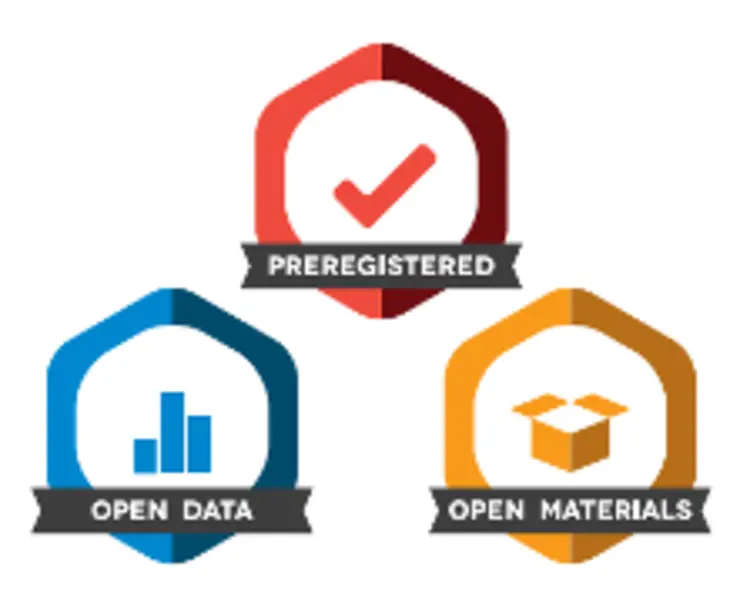![[Translate to English:] Kunst auf der La Biennale di Venezia 2021](/fileadmin/_processed_/b/5/csm_csm_sampere_c4a124e68a_d000a5566d.webp)
Science knows no country, because knowledge belongs to humanity, and is the torch which illuminates the world. (L. Pasteur)
Prof. Dr. Cornelia Betsch and her team work on understanding principles of health behavior by applying a judgment and decision making and strategic interaction perspective to infectious disease control - especially with regard to the vaccination decision and prudent use of antibiotics.
At the same time, they believe in the necessity to make research findings usable. That’s why this team is also involved in creating online materials for health organizations (such as the Europen Centre for Disease Prevention and Control or the Bundeszentrale für gesundheitliche Aufklärung) or in projects with authorities such as the World Health Organization, Regional Office for Europe, or the Thuringian Ministry of Health. This combination of high understanding and high usability of research has been labelled “Pasteur’s Quadrant” (Stroke, 1997). We would like to follow this luminous tradition by striving for both high understanding and high usability to contribute to the attainment of public health goals.
New flyer summarizes background info and initial findings of the Planetary Health Action Survey (PACE).

Climate change is ranked by scientists worldwide as the greatest global threat to human health. Nevertheless, so far, action has been taken too hesitantly to preserve our livelihoods. The PACE (Planetary Health Action Survey) project develops strategies and methods to improve climate communication and to design climate protection measures in such a way that they are accepted and supported by the public. The aim of the project is to create a basis for climate protection at the political and social level - and thus to accelerate it.
Repeated online surveys contribute to a better understanding of the factors influencing climate protection-related attitudes and behavior. The willingness to take action against climate change is linked to psychological and health-related aspects.
PACE is a joint research project by the University of Erfurt, the Robert Koch Institute, the Federal Center for Health Education, the Leibniz Institute for Psychology, the Science Media Center and the Bernhard Nocht Institute for Tropical Medicine.
Funding: PACE is funded by the Klaus Tschira Foundation, the Federal Ministry of Health, the Robert Koch Institute and the Federal Center for Health Education.

"JIU JITSU WITH MISINFORMATION IN THE AGE OF COVID"
JITSUVAX is an EU Horizon 2020 funded project coordinated by the University of Bristol working with five other EU institutions as well as one in Canada. The project will run from May 2021 until April 2025. We will develop training procedures, apps and guidance documents that can be used to help healthcare workers fight misinformation around vaccines. These will be shared widely and freely across Europe and beyond using existing healthcare networks.
Preventive and curative health decisions are often conceptualized as individual cost-benefit considerations. Some health decisions, however, also have consequences for other people. Nevertheless, these positive or negative effects on third parties (externalities) are neglected in the classical view as mechanisms and potential incentives in health decisions. Vaccinations, for example, often have positive externalities because they help to protect unvaccinated people by reducing the transmission of diseases. Antibiotic use, on the other hand, is an example of negative externalities, because excessive and improper use leads to resistance and uninvolved third parties can be harmed when antibiotics are no longer effective. Health decisions thus become social interactions when the decisions of several individuals and their health consequences influence each other and individual interests have to be weighed against collective interests.
In the preceding project "An interdisciplinary approach to explain and overcome vaccine fatigue", the vaccination decision was systematically analysed for the first time as a social interaction on the behavioural level. In three work packages of this follow-up project, we are now building directly on the proven research approach of analyzing social-interactive health decisions through interactive decision tasks (Health Games). It was repeatedly shown that prosocially oriented vaccination education is helpful to increase the willingness to vaccinate. In the first work package this will be critically examined with regard to facilitating and hindering moderators and mediators. Furthermore, studies from the previous project show that individuals are less willing to vaccinate if they perceive a lower effectiveness of the vaccination. Theoretical models, on the other hand, clearly show that this is normatively wrong, since with decreasing effectiveness indirect protection also decreases. Therefore, the follow-up project in the second work package is comprehensively devoted to the identification and evaluation of different debiasing strategies. The third work package transfers the research approach to antibiotic consumption and examines determinants of the intake decision in order to be able to develop strategies for reducing excessive antibiotic consumption in the future. For this purpose, a new interactive decision task has been developed, which models the social-interactive dynamics in the development of antibiotic resistance.
The work in this project extends theoretical models, since in the dilemmas described above, behavioral predictions change depending on whether the externalities of the individual decision are taken into account or not. The findings from this project contribute to the development of evidence-based interventions to reduce vaccine fatigue and excessive antibiotic use.
Antimicrobial resistance (AMR) is among the biggest threats to global health. Despite growing efforts to tackle this problem, global antibiotic overuse fosters the development of AMR. Behavioral insights from psychological studies help to understand and possibly change problematic use and prescription behavior, but measurement instruments to capture related constructs that adhere to psychometric quality standards are missing. With this project, we aim at filling this information gap by developing psychological measures to assess AMR-related knowledge, attitudes, and decision making that overcome psychometric limitations of earlier instruments. The new measures will allow the assessment of individual factors related to AMR, will be published as open source material, and can be used in a wide range of contexts both in research and practice across countries. Furthermore, when the new measurement instruments are available, we will employ them to investigate causes and effects of antibiotics overuse and test interventions to counter this problem, in both the global north and the global south.
Behavioral insights have been recognized as being key for successful and cost-effective interventions. Recent movements in disciplines that produce behavioral insights – such as psychology and economics – have unmasked that oftentimes findings fail to replicate in other labs. Little is known about the effects in the field. This project aims to conduct replications of interventions on health-related topics (e.g. vaccine hesitancy, hand hygiene) across different settings to elucidate potential moderating sociocultural effects. Additionally, it aims to incentivise and support researchers in non-WEIRD settings to replicate the findings in their settings. This will be pursued through collaborations between existing working groups at the Bernhard Nocht Institute for Tropical Medicine and their established networks. With these potential insights and data, better targeted health research and interventions could be designed.
This knowledge transfer project builds on the results of two DFG-projects, which have shown that narrative reports of vaccine-adverse events have a strong distorting effect on the perception of vaccination risks and the vaccination intention. The application partner is the Paul-Ehrlich-Institute (PEI). With Frank Renkewitz, University of Erfurt. This project is funded by the DFG.
Duration: 02/2017 - 01/2020
Doctoral student: Lisa Felgendreff (née Steinmeyer).
In this joint project with the Robert Koch Institute, the Universitätsklinikum Jena and Lindgrün GmbH we created and evaluated an evidence informed intervention to address vaccine hesitancy regarding influenza and pneumococcal vaccination in the elderly. We draw upon the 4C model of vaccine hesitance (Betsch, Böhm & Chapman, 2015) and evaluated the intervention in terms of (a) knowledge and intentions, vaccine uptake and in a cost effectiveness study for the model region of Thuringia. Funded by the German Ministry of Education and Research (BMBF). More info here: impfen60plus
Doctoral students: Dorothee Heinemeier, Sarah Eitze, Philipp Schmid (psychology), Winja Weber, Anne Reinhardt (communications), Nora Küpke (lab manager).

Staff members of the Chair of Health Communication are committed to Open Science. We are members of the Erfurt Open Science Initiative (EFOSI)
We embrace the values of openness and transparency in science by applying Open Science practices in our research, teaching, support of young researchers and interactions with our institution.
Some staff members of the Chair of Health Communication are members of the Center for Empirical Research in Economics and Behavioral Sciences (CEREB)